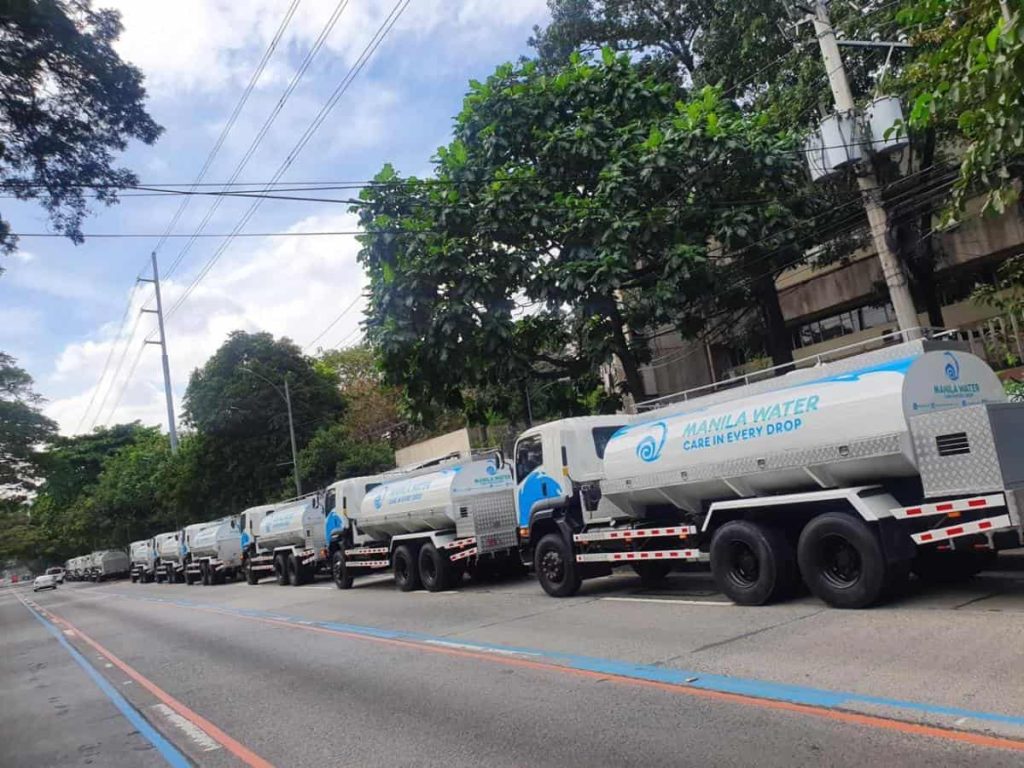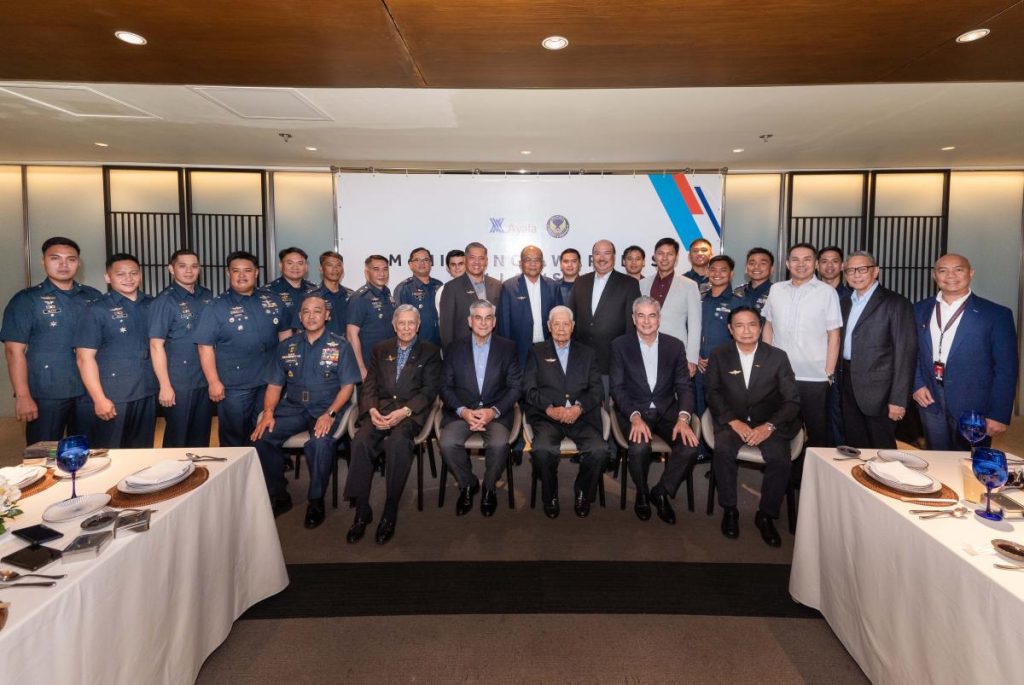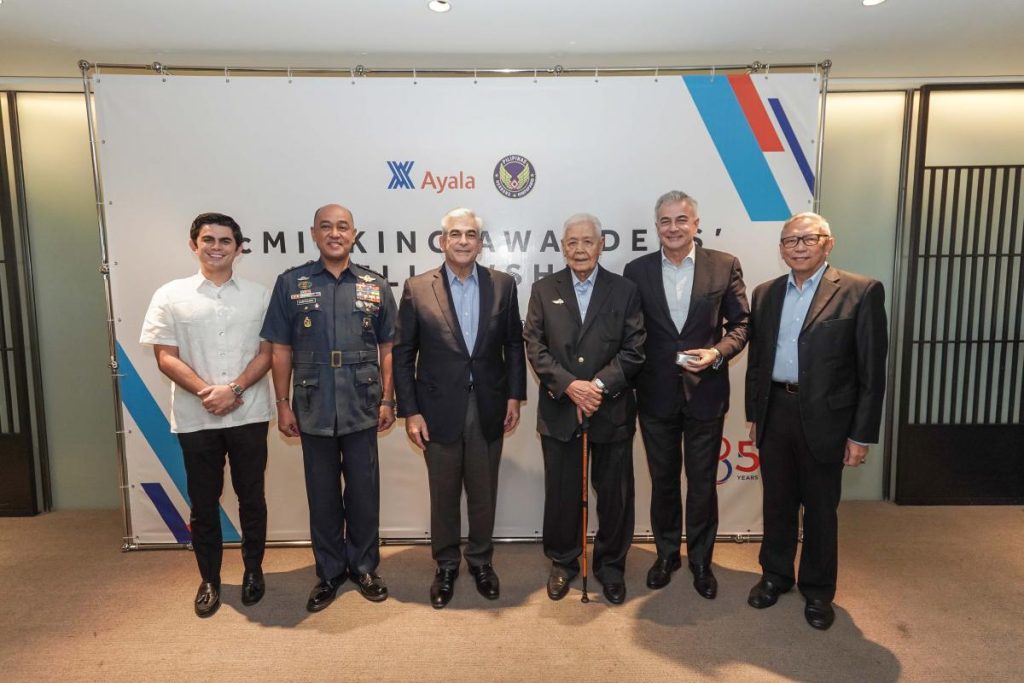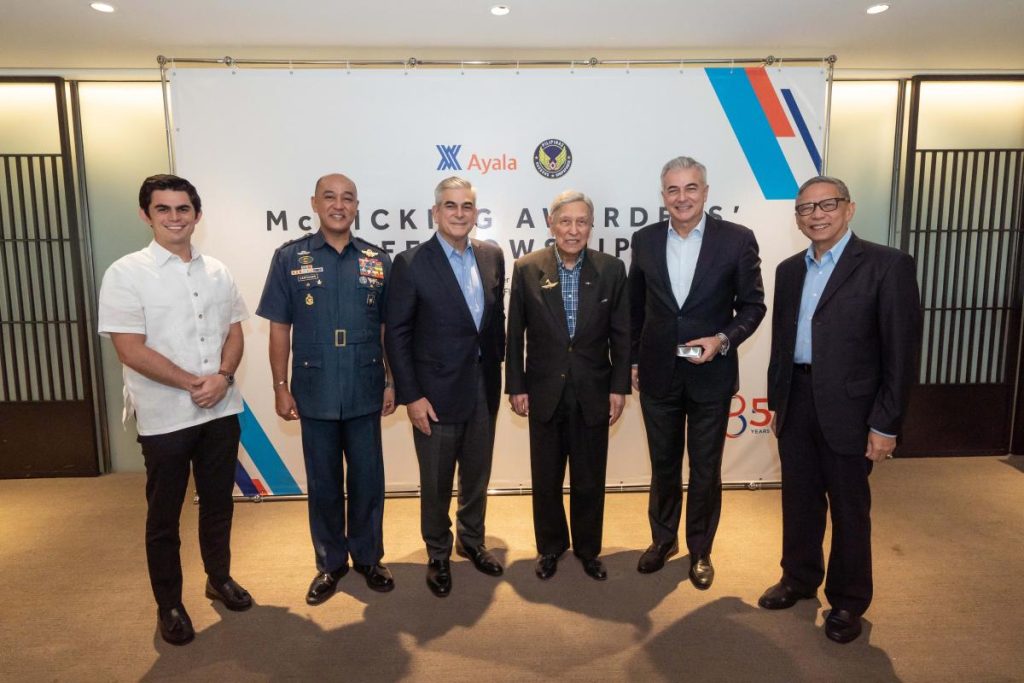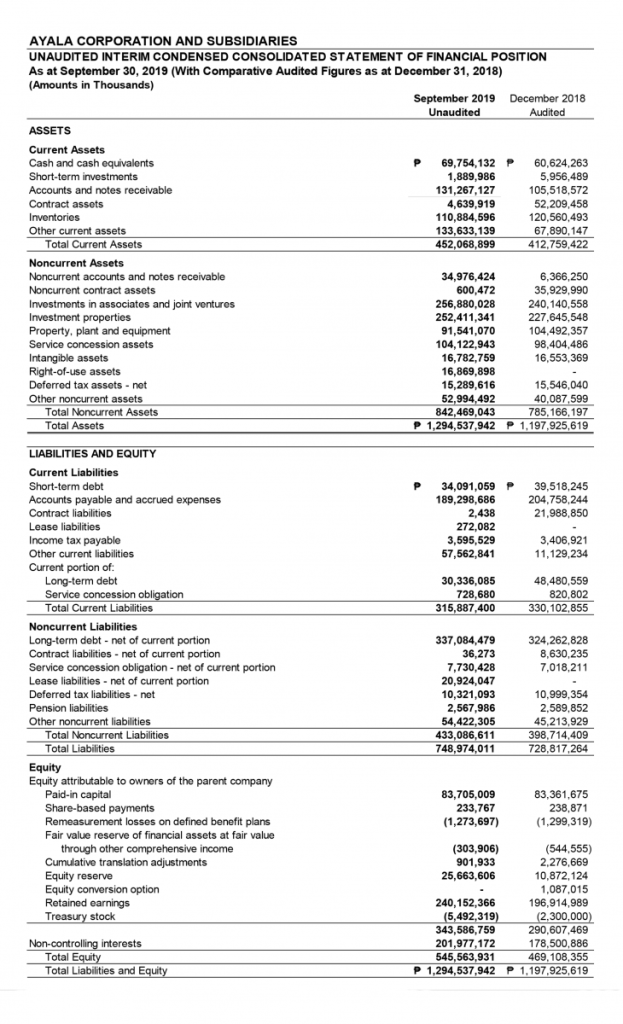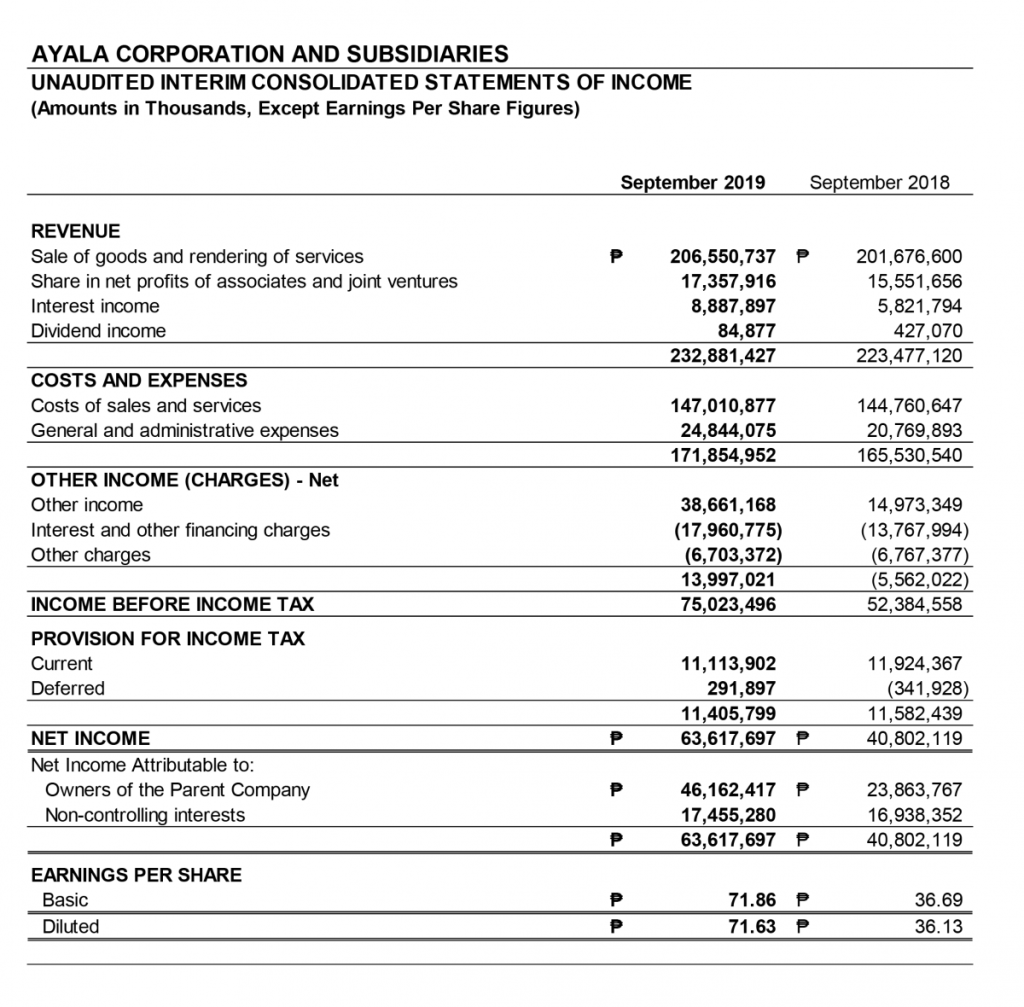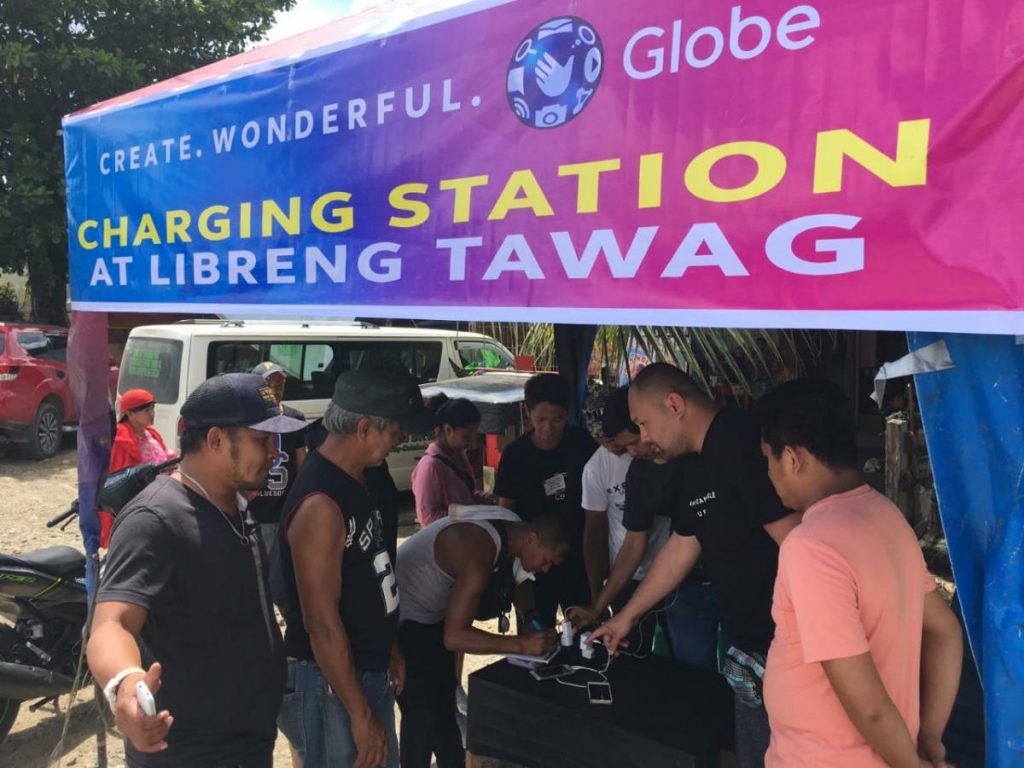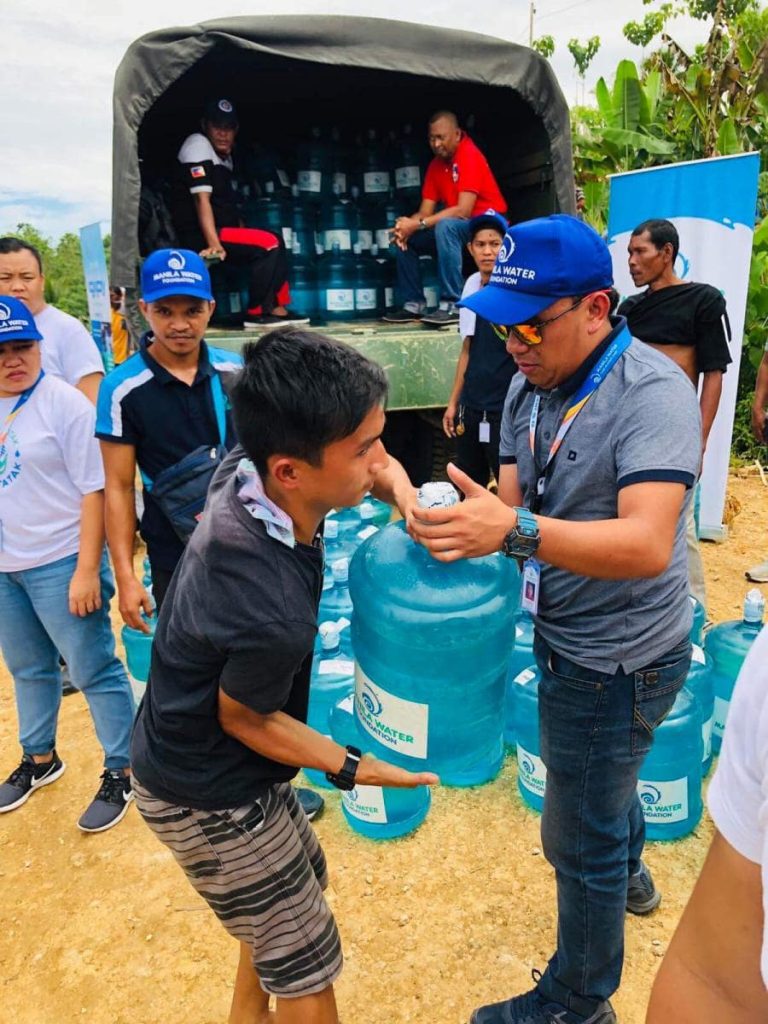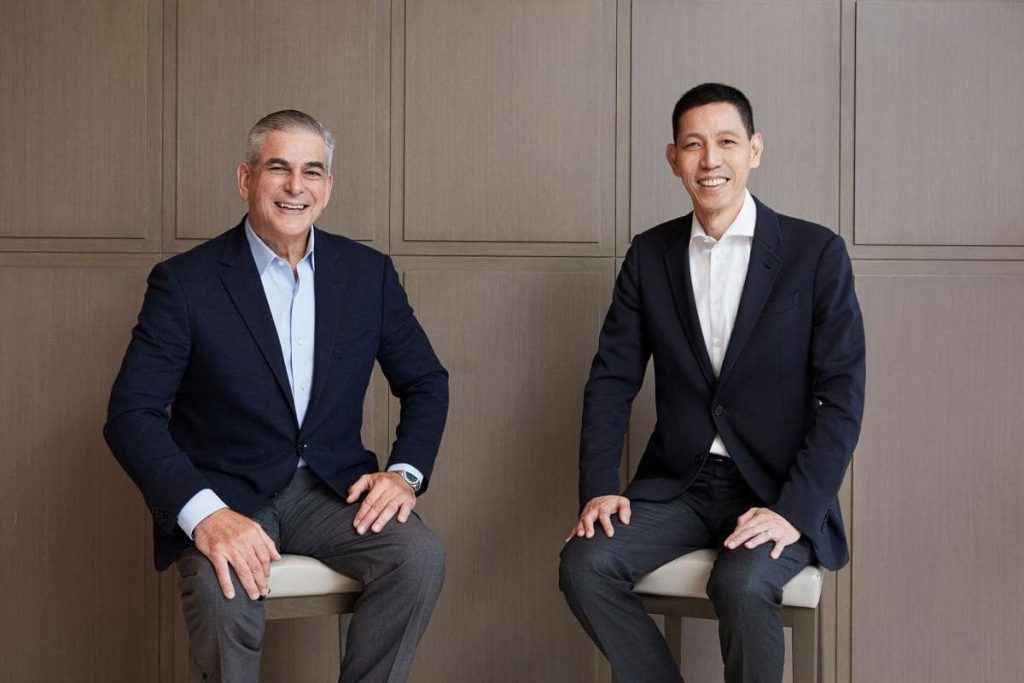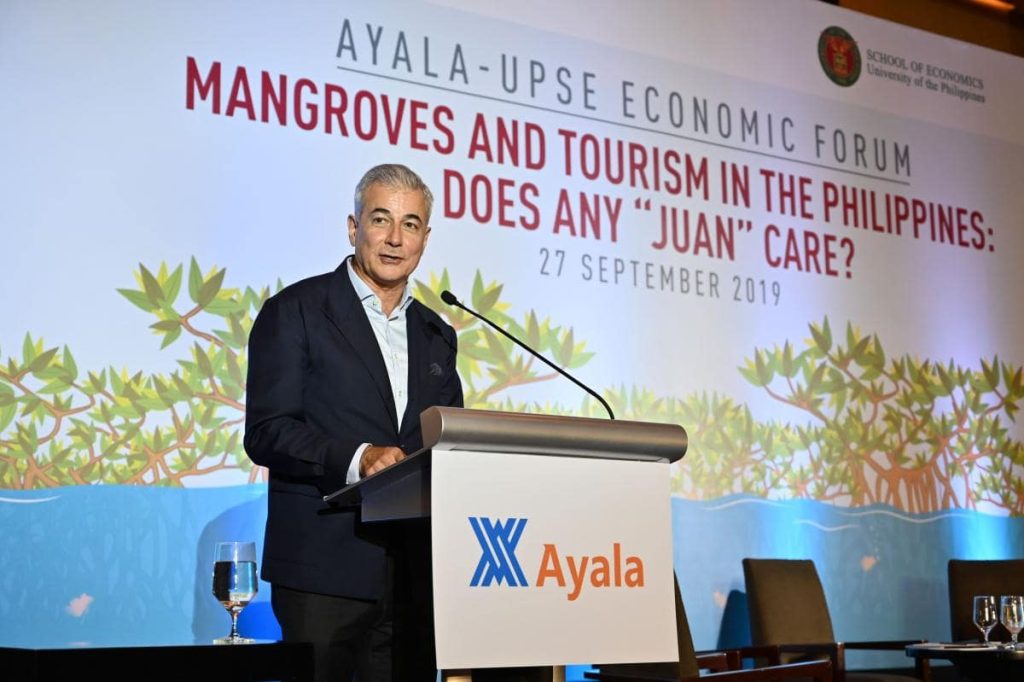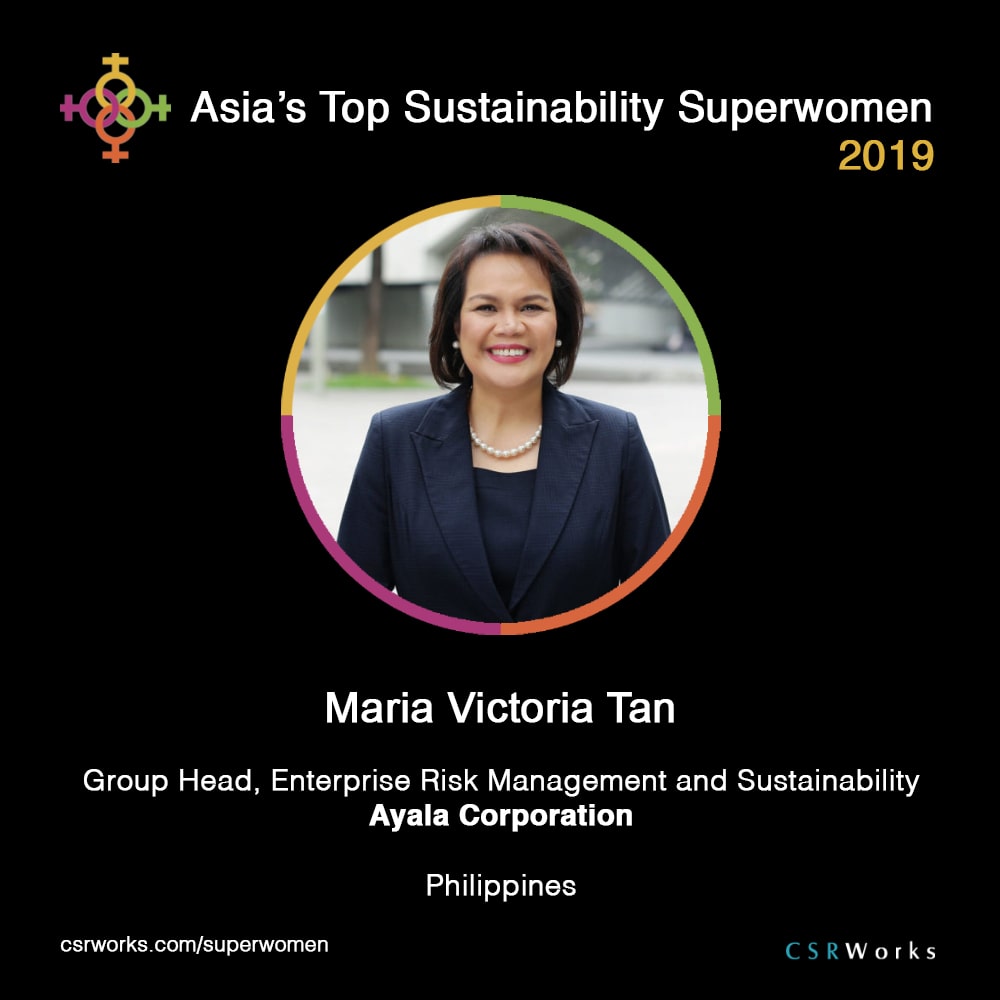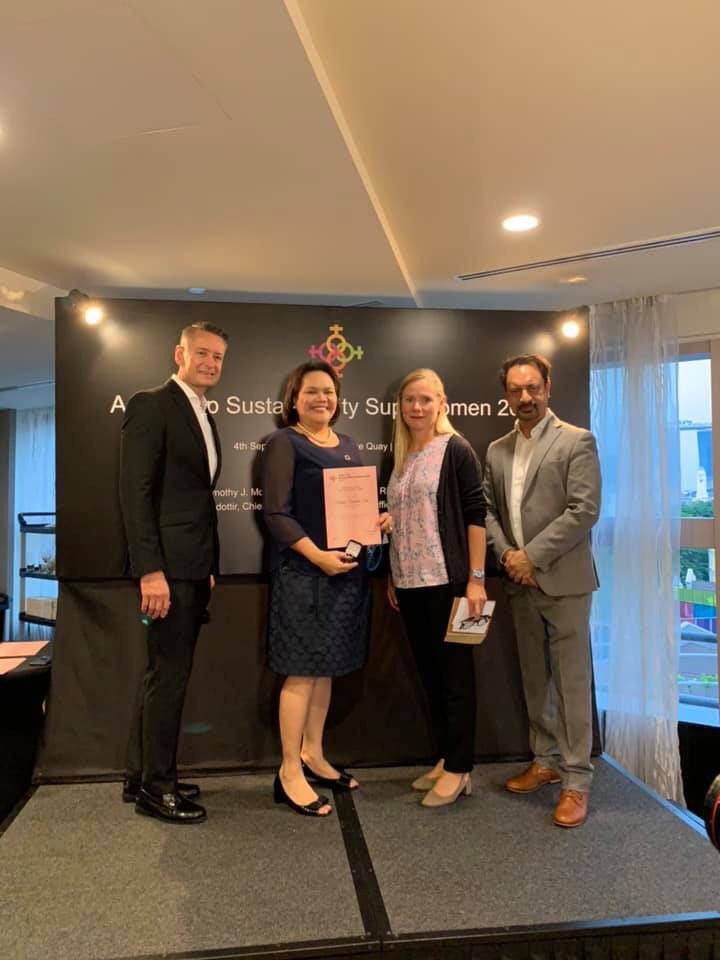Makati, Philippines – January 14, 2020 The Ayala group sustains its relief efforts to aid the communities hardest hit by the ongoing eruption of Taal Volcano. The incident displaced thousands of Filipinos and has placed Batangas province under a state of calamity.
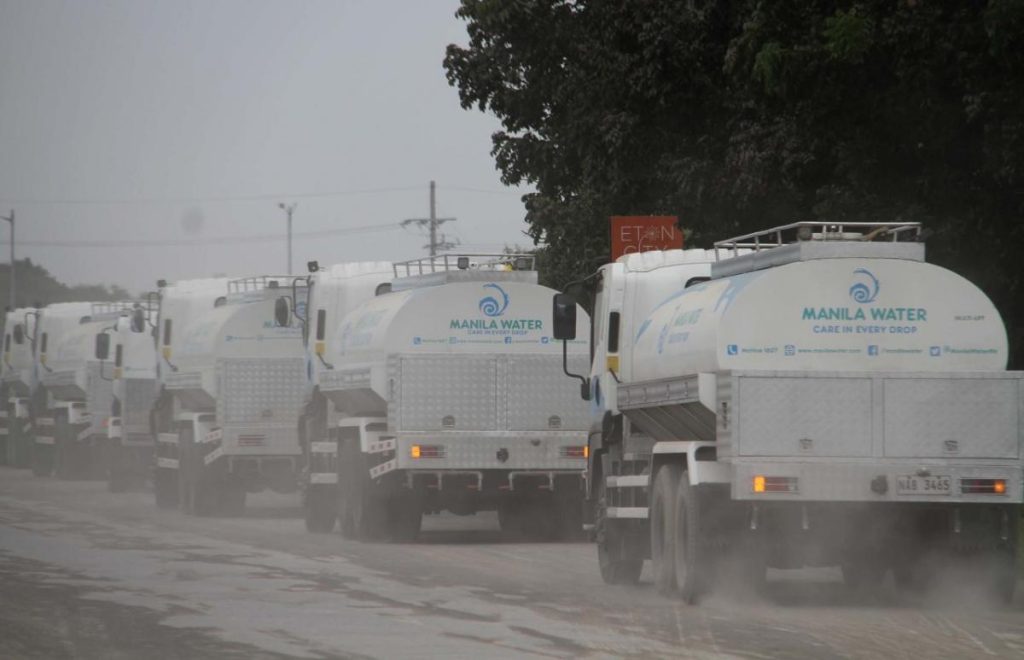
Yesterday, January 13, 2020, Manila Water dispatched 30 water tanker trucks from its Balara headquarters in Quezon City. Initially, they carried a combined 248 cubic meters of water to 19 evacuation centers in Batangas and Laguna, where they continue to be stationed. These tankers have been refilled thrice by Laguna Water since yesterday. A total of 10,000 evacuees availed of free potable water by filling up containers.
In coordination with the Batangas Provincial Disaster Risk Reduction and Management Office (Batangas PDRRMO), Manila Water continues to provide clean drinking water to the evacuation centers in the towns of Sto. Tomas, Tanauan City, Lipa City, Batangas City, San Pascual, San Luis and Cuenca including Tagaytay City and Alfonso in Cavite.
Similarly, Manila Water Foundation distributed 2,000 units of 5-gallon bottles of potable water to Sta. Teresita and Bauan, Batangas where it provided the water needs of the evacuees from the municipalities of Agoncillo, San Nicolas, Laurel, Taal and Talisay. This was done in coordination with partners from Batangas PDRRMO, MMDA, RAF International Forwarding Phils. Inc., GMA Kapuso Foundation, Inc., Philippine Air Force 710 SPOW, 730th Combat Group – Nasugbu, Batangas and Bureau of Fire Protection – Laurel, Batangas and representatives from Barangay Labas.
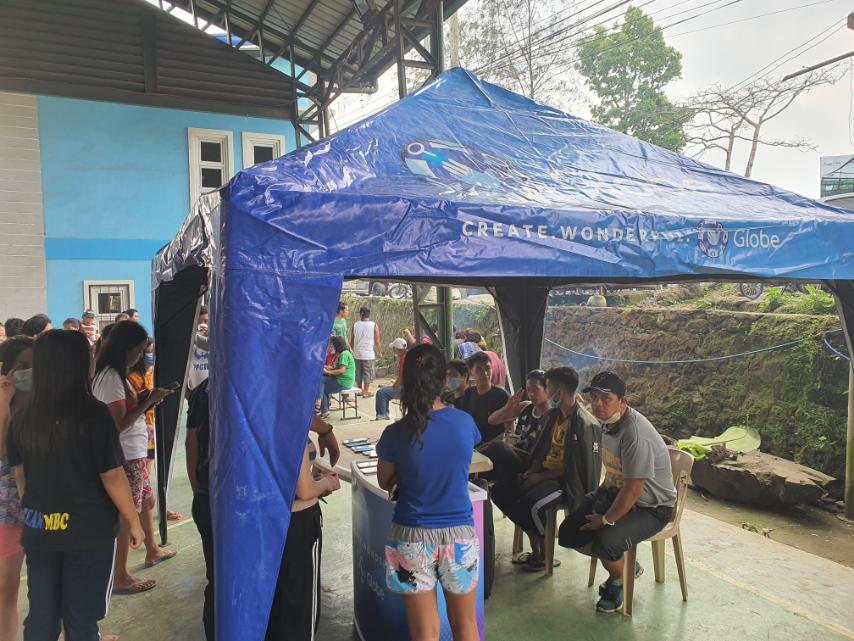
Meanwhile, Globe Telecom (Globe) has set up five Libreng Tawag and Charging Stations in Cavite (Brgy. Amuyong Covered Court, Bagong Tubig Barangay Hall, Brgy. Kaybagal South Old Rehab Center, and Luksihin National HS in Brgy. Luksuhin) and Batangas (Sto. Tomas City Evacuation Center Poblacion 3) from January 13-16, 2020. More Libreng Tawag and Charging centers will be set up as the need arises, to help keep people connected during the disaster.
Globe also continues to provide free and unlimited GoWiFi internet connection in all four terminals of the Ninoy Aquino International Airport, which cancelled hundreds of flights due to the risk from volcanic ash released by Taal Volcano. Globe is also providing free and unlimited GoWiFi internet connection in select malls in Laguna, Cavite and Batangas. Free GoWiFi will be available until today.
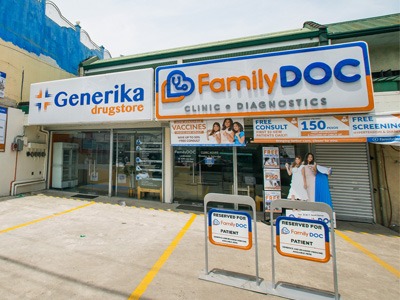
AC Health continues to be on standby to provide medical assistance to those affected by the eruption. All 74 FamilyDOC clinics are open today, including branches in affected areas in Cavite and Laguna. As of January 13, 2020, most Generika Drugstore branches are open and ready to serve the public, except for branches in the immediate danger zone in Batangas and Cavite.
Meanwhile, the Bank of the Philippine Islands (BPI) branches are open today except for branches in Tagaytay Highway, Tagaytay Ayala Malls Serin, Lemery Batangas and Solenad 3, which are in the immediate danger zone.
The Ayala group continues to work with concerned LGUs to deliver aid to the affected communities. According to the Philippine Disaster Resilience Foundation (PDRF), the country’s major private sector vehicle and coordinator for disaster risk reduction and management, these communities urgently need the following donations: N95 face masks, food items, sleeping mats, hygiene kits, gensets (and fuel), and more drinking water.

